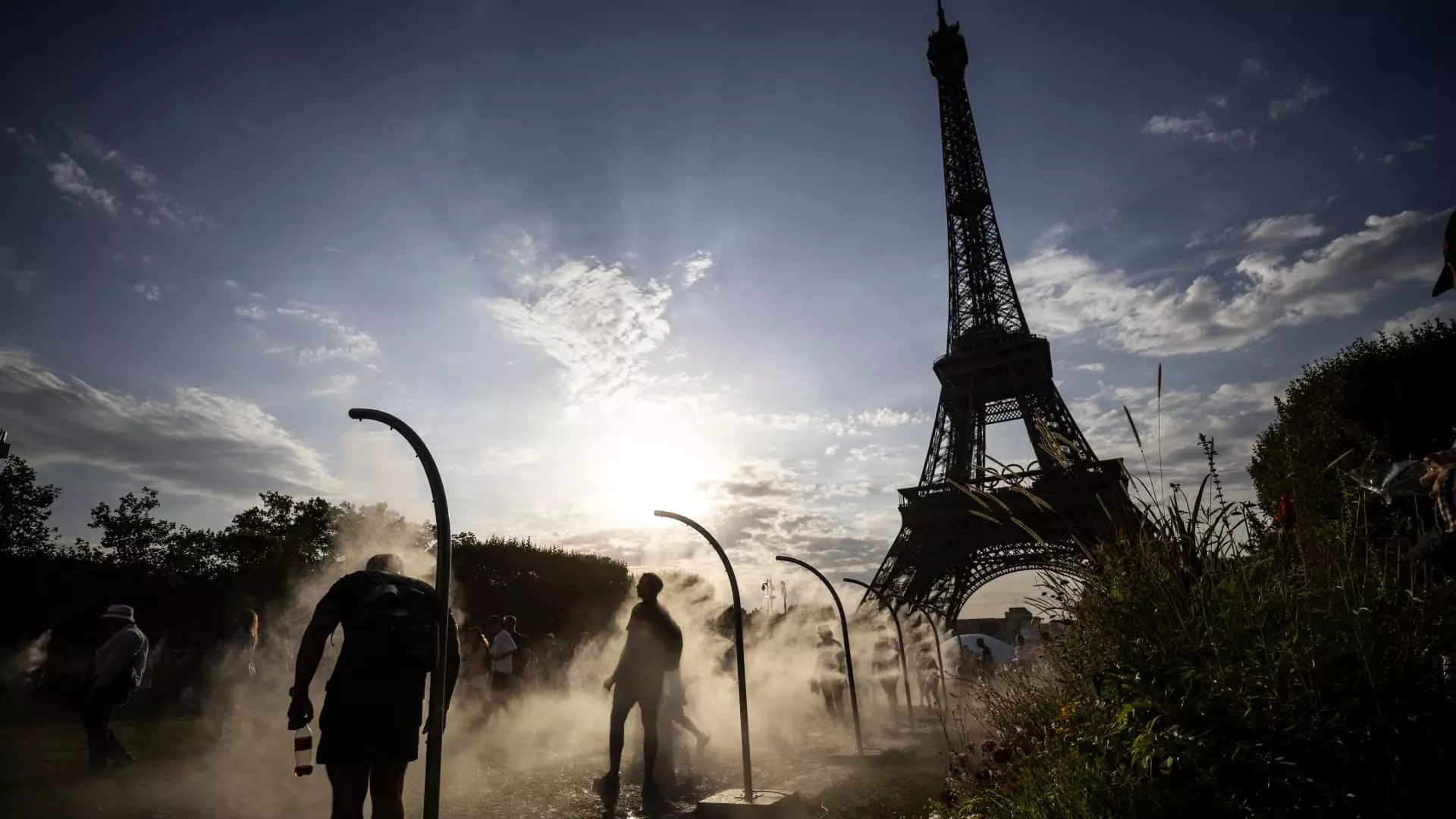As the 2024 Olympics unfold in Paris, the fierce summer sun is making headlines just as impressively as the athletes themselves. While U.S. gymnastics icon Simone Biles is a face of formidable talent, she, like many competitors, has experienced the impact of unexpected weather conditions during the games. The contrast starkly emerged from an opening ceremony that initially promised a picturesque Paris backdrop, subsequently giving way to relentless heat. Recent reports indicate temperatures have soared to as high as 36 degrees Celsius (97 degrees Fahrenheit), transforming the competition environment into a real struggle for endurance and adaptability.
Athletes from various sports have openly expressed their discomfort, revealing the physical and mental toll that extreme heat can take on performance. The challenge is evident: athletes who are accustomed to rigorous training must now cope with an additional adversary—the very climate that surrounds them. Biles, among others, highlighted the complications this weather presented during her commute to the venue, illustrating how logistics can exacerbate existing challenges.
Tennis players have particularly vocalized their discontent with the conditions during matches. British player Jack Draper lamented the inadequacy of water bottles provided to competitors, noting that they fail to remain cool in such sweltering circumstances. “I haven’t played in this kind of heat for four months; it’s really tough out there,” Draper stated. His comments reflect a broader concern within the sporting community regarding how heat not only affects athletes’ physical performance but can also significantly alter a competitor’s mental state.
Canadian Leylah Fernandez echoed these sentiments, characterizing the conditions as “crazy.” Training in warmer climates like Spain and Miami did not fully prepare her for the challenges posed during competition. The emotional and psychological aspects of competing under intense heat cannot be overstated; to succeed, athletes must not only manage their physical output but also navigate the myriad distractions introduced by their environment.
Strategic Adaptations Amidst Rising Temperatures
In light of these conditions, teams have adopted various strategies to maintain optimal performance and safeguard athlete welfare. The New Zealand women’s rugby sevens team turned to cold baths, slushies, and ice water which have become essential as they prepare for their matches. This adaptive approach underscores the critical importance of hydration and body temperature regulation in modern sports, especially during extreme conditions such as those seen in Paris.
Moreover, specific protocols have been instituted; for instance, athletes in sports like soccer and tennis now receive additional breaks, which allow them moments of respite from the oppressive heat. Sailing participants along the Mediterranean coast are utilizing ice vests, and BMX competitors even have access to umbrellas for shade. This proactive approach is a testament to how the sporting world is beginning to accommodate climate-related challenges.
The conversation spirals further, revealing that these extreme weather patterns are not fortuitous anomalies but rather a consequence of human-induced climate change. A study by the World Weather Attribution group emphasizes that the current heatwave would have been “virtually impossible” without the impact of climate change. Such insights serve as a clarion call to the global community, illustrating how the choices humans make today have direct repercussions on future events, including these illustrious Olympic Games.
As noted by climate scientist Friederike Otto, the current Olympics may very well be emblematic of a new reality where athletes battle conditions thought to be unbearable merely a generation ago. “The world watched athletes swelter in 35°C heat,” she stated, advocating for a reevaluation of how climate change is perceived in the context of competitive sports.
The intersection of sports, climate, and human endurance has never been more crucial than it is today. The Paris Olympics might etch themselves into history not just for the incredible feats performed by athletes but for the conversations that arise around climate sensitivity and the urgent need for adaptive measures within the sporting arena. As we watch these athletes persevere, it becomes clear that both preparation and awareness about climate conditions will play pivotal roles in how future events are conducted. The message is powerful: only through adaptation, awareness, and action can the Olympic spirit continue to thrive amid challenges wrought by a changing environment.


Leave a Reply